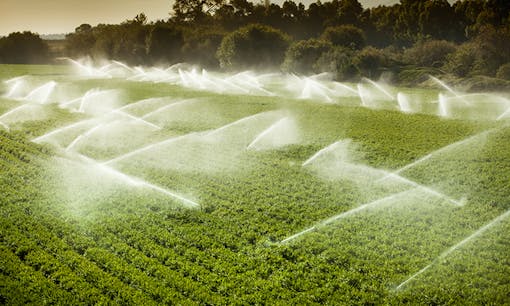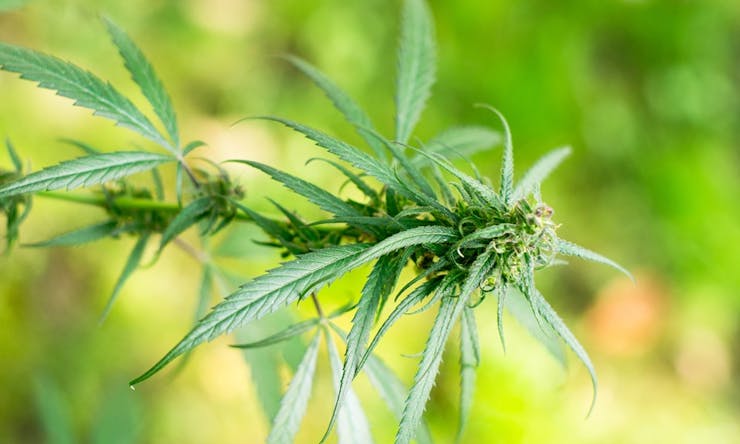Since pro-slavery senator James Henry Hammond coined the term “cotton is king” in 1858, the textile has enjoyed top billing as the world’s primary fabric. In fact, cotton production is projected to quadruple by the year 2050. But should it really be “the fabric of our lives,” or is hemp more worthy of that designation?
Hemp was used for thousands of years to produce durable textiles in massive quantities. However, the broad-spectrum prohibition of cannabis made industrial hemp just as illegal as cannabis. In the process, the hemp textile industry was destroyed.
With the growing decriminalization and legalization of cannabis across the U.S., hemp has the opportunity to knock cotton off its throne and become the fabric of our future. Here’s why.
Hemp Production Is More Efficient Than Cotton Production

In a time when consumers are becoming increasingly mindful of the environmental and human impacts of the products they buy, how can cotton possibly remain the fabric of our lives? Accounting for less than 2.5% of cropland worldwide, cotton uses 16% of the world’s pesticides. Unsafe use of chemicals severely impacts ecosystems that receive run-off from farms, decreasing animal fertility and freshwater biodiversity.
Excessive use of chemicals is hazardous to the health of field workers and communities in surrounding areas. Throughout the value-chain of cotton products — from soil to shelf — wages are intolerably low and conditions are horribly poor. There’s a reason why slavery was the mainstay of the cotton industry in America’s south.
Hemp production, in comparison, can use similar amounts of pesticides as cotton production, but it requires half the territory as cotton to produce a ton of finished textile. Going organic can cut down on more than one-half of the energy in farming either product, but the yield per acre drops due to the inverse relationship between chemical use and land requirements, so hemp farming can produce better yield with less land even if it’s using similar amounts of energy as cotton farming. Hemp production also has a smaller overall ecological footprint than cotton production.
Hemp Crops Use Less Water Than Cotton Crops

It can take more than 20,000 liters (5,000 gallons) of water to produce 1kg (2 pounds) of cotton, the equivalent of a single T-shirt and pair of jeans. As one of the most “thirsty” crops, cotton is heavily irrigated and is depleting our limited freshwater sources.
Shop highly rated dispensaries near you
Showing you dispensaries nearMeanwhile, studies show that hemp farming uses considerably less water than its thirsty cotton counterpart. The Stockholm Environment Institute analyzed the UK production of cotton vs. hemp and found that one grow used an estimated 10,000 liters of water to produce 1kg of cotton compared to about 300-500 liters of water to produce 1kg of dry hemp matter, of which 30% is suitable for fiber production.
Hemp Doesn’t Wear out as Quickly as Cotton

Hemp fabric is said not to wear out, but rather softens over time. Its fiber can be woven into light materials for clothing, durable textiles for commercial industrial purposes, and even into very strong ropes and cables for heavy lifting and pulling. Unlike cotton, hemp holds its strength when wet, and it also possesses anti-bacterial properties.
If hemp is a better alternative to other materials, what happened to hemp textiles? Hemp was actually used for thousands of years to produce durable textiles in massive quantities. In fact, the word “canvas” is actually derived from the word “cannabis.” Hemp canvas was used to make the sails of the great ships that traversed the seas to discover vast new lands, and to cover the Conestoga wagons that settled the American west. Levi Strauss even once made his famous jeans from hemp fiber textiles.
Unfortunately, the broad-spectrum prohibition of cannabis made industrial hemp just as illegal as marijuana. In the process, the hemp textile industry was destroyed. With the worldwide demand for textiles on the rise, isn’t it time to reduce the use of cotton and replace it with a sustainable alternative? American farmers deserve to grow it, just as their ancestors did.
We think it’s time for hemp to reclaim its place as king of textiles. With all of the economic, environmental, and useful advantages it offers as a textile crop, hemp deserves to reclaim its position as the fabric of our future.
Learn more about Kentucky Hempsters and industrial hemp at kyhempsters.com, or check them out on the following social media platforms:





